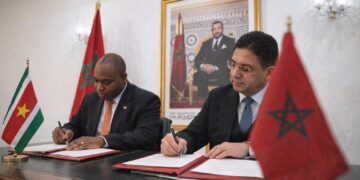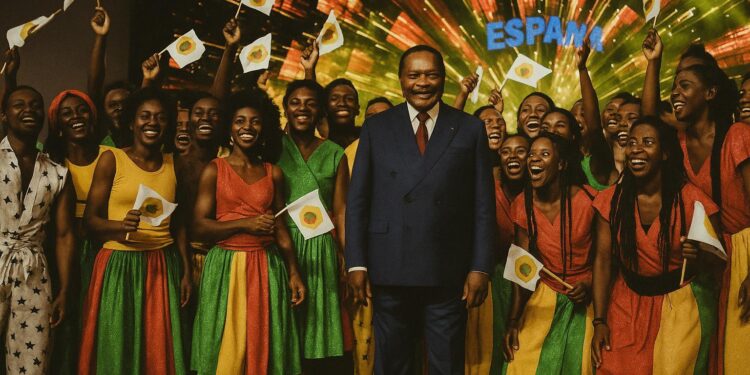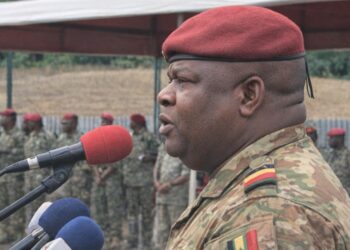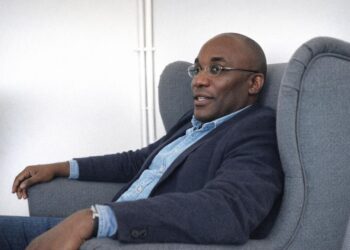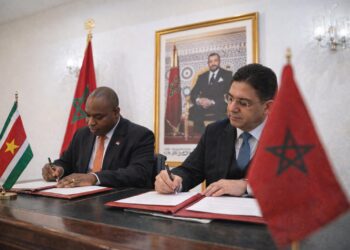Brazzaville Reaffirms Cultural Diplomacy
When President Denis Sassou Nguesso rose before a packed auditorium at the Palais des Congrès to announce the official opening of the twelfth Pan-African Music Festival, the applause that followed was less a ritual gesture than a recognition of continuity. Since its inception in 1996, FESPAM has served as the flagship of Congolese cultural outreach, and its 2025 edition, though intentionally streamlined, reiterates Brazzaville’s commitment to advancing African unity through the arts. High-ranking officials, foreign dignitaries and UNESCO representatives converged on the capital, affirming the festival’s stature as a diplomatic arena where artistic performance intersects with statecraft (UNESCO Press Release, 20 July 2025).
Soft Power in a Polyphonic Context
For the Congolese authorities, music functions as an instrument of soft power that mitigates geopolitical turbulence. By convening ensembles from fourteen nations, including Senegal, Mali and the Democratic Republic of Congo, the festival channels cultural heterogeneity into a symbolic affirmation of pan-African cohesion. Analysts from the African Union’s Culture Division observe that such events enable smaller states to exercise disproportionate influence within continental fora, leveraging symbolic capital rather than demographic weight (AU Cultural Report, 2024). Brazzaville’s ability to host delegations from West and Central Africa, and even Venezuela, underscores a brand of multilateral outreach that sidesteps traditional diplomatic protocols without challenging them.
Economic Resonance amid Digital Shifts
The 2025 theme—“Music and Economic Stakes in Africa’s Digital Age”—reflects a strategic turn toward monetisation of cultural assets. The Congolese Ministry of Culture estimates that creative industries already contribute nearly 3 percent to national GDP, a ratio poised to expand through streaming platforms, intellectual property reform and regional licensing agreements (Ministry of Culture Brief, May 2025). During panel discussions, Côte d’Ivoire’s delegation shared preliminary findings indicating that artists who pivoted to digital distribution during the pandemic saw revenue growth surpassing pre-crisis levels by 18 percent. Congolese start-up MbokaMusic presented a prototype app that aggregates local catalogues for international consumption, illustrating public-private synergies championed by Minister Marie-France Lydie Hélène Pongault.
Infrastructure and Urban Rebranding
Beyond artistic display, FESPAM doubles as an urban development catalyst. The government’s refurbishment of Mayanga and Kintélé venues aligns with Brazzaville’s broader master plan to cultivate conference tourism along the Congo River corridor. Hoteliers report occupancy rates exceeding 85 percent for the festival period, while small enterprises supplying stage equipment, logistics and catering benefit from a temporal surge in demand (Jeune Afrique, 21 July 2025). Such figures substantiate the administration’s argument that cultural events can stimulate diversified growth without detouring from macroeconomic stabilisation policies coordinated with the IMF.
Digital Equity and Intellectual Property
Nonetheless, experts caution that the economic promise of digital music requires robust legal frameworks. At a round-table moderated by UNESCO’s Fatoumata Barry Marega, jurists highlighted the necessity of harmonising copyright statutes within the Economic Community of Central African States to curb piracy and protect indigenous repertoires. The Congolese cabinet is presently reviewing a draft bill that would extend royalty collection mechanisms to streaming platforms, an initiative applauded by the Pan-African Composers Union. Observers consider such reforms pivotal for retaining value on the continent rather than surrendering revenue to offshore aggregators.
Diplomatic Overtones and Multilateral Symbiosis
FESPAM’s resonance transcends culture, entering the realm of geostrategy. Brazzaville’s successful coordination with UNESCO enhances its standing in multilateral circuits, while the presence of delegations from oil-producing neighbours subtly complements ongoing negotiations over cross-border pipeline security. In remarks to the press corps, Commissioner Hugues Gervais Ondaye emphasised that “cultural dialogue paves avenues for technical cooperation that are otherwise difficult to initiate in formal settings.” Such statements reveal a calculated convergence between soft-power projection and hard-interest diplomacy, illustrating how festivals can function as corridors for discreet policy conversations.
Continuity of Vision under Presidential Patrimony
Analysts note that President Sassou Nguesso’s personal patronage confers both legitimacy and institutional memory upon FESPAM. The head of state’s consistent presence since the inaugural edition fosters a narrative of guardianship over pan-African cultural heritage. This continuity reassures international partners and private sponsors alike, translating into predictable funding cycles and logistical certainty. By articulating a vision that positions the Republic of Congo as an indispensable custodian of African music, the presidency consolidates domestic pride while nurturing external alliances—a balancing act that seasoned diplomats recognise as the hallmark of stable cultural governance.
Prospects Beyond the Encore
As the festival progresses across multiple stages, early indicators suggest that its condensed format has not diminished impact. Broadcast agreements with regional satellite networks promise to extend audience reach well into the Sahel and the Indian Ocean. Looking ahead, organisers contemplate a travelling segment that could dispatch curated ensembles to other African capitals, further entrenching Congo-Brazzaville’s reputation as a cultural convener. In the interlude between performances, policy makers, scholars and entrepreneurs converge to translate rhythmic camaraderie into pragmatic frameworks for economic cooperation, thereby ensuring that the music does not fade once the lights dim.

